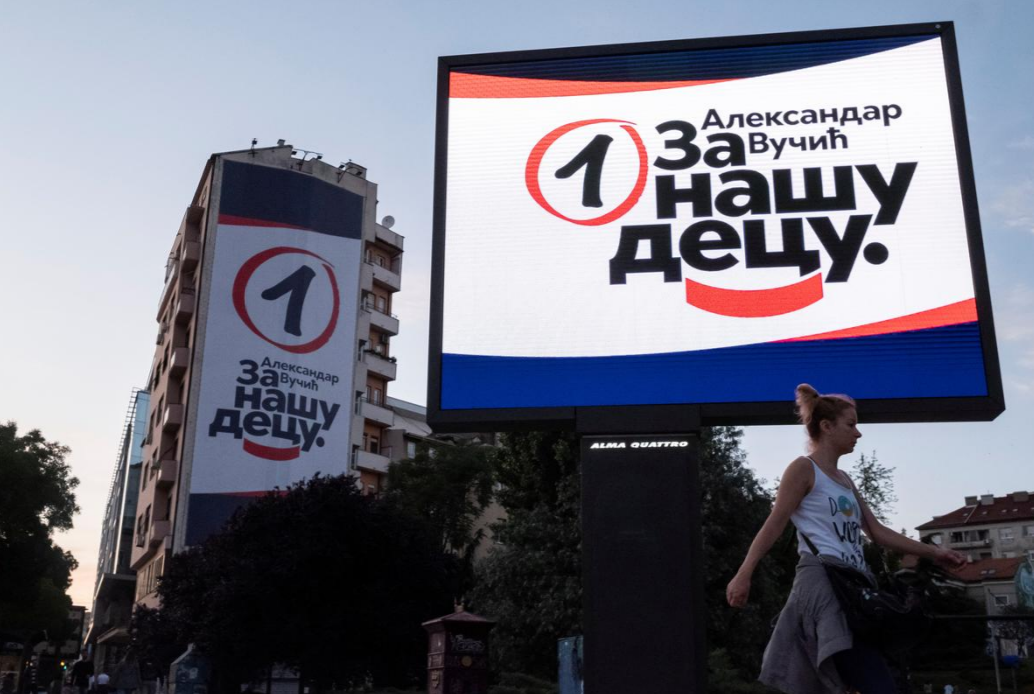00:42

Serbians went to the polls on Sunday to elect a new parliament in Europe's first national election since coronavirus lockdowns took effect three months ago, with the ruling conservatives expected to win a comfortable majority.
Polling stations were equipped with face masks and hand sanitizers for the use by the country's almost 6.6 million voters, many of whom might skip voting, partly due to fears of getting infected with the virus.
Voters largely back efforts by President Aleksandar Vucic's ruling coalition to push for Serbian membership of the European Union while maintaining strong ties with Russia and China.
The 50-year-old Vucic is not running for parliament himself but has fronted the campaign as the chief of his Serbian Progressive Party (SNS) with the slogan: "Aleksandar Vucic – For Our Children."

Election campaign posters of ruling Serbian Progressive Party in Belgrade, Serbia, June 18, 2020. /Reuters
Election campaign posters of ruling Serbian Progressive Party in Belgrade, Serbia, June 18, 2020. /Reuters
According to the latest opinion polls, Vucic's conservative SNS is set to win about 50 percent of the vote, boosted by widespread approval over the government's handling of the pandemic.
Vucic's coalition partner, the Socialist Party, is expected to come second with about 10 percent.
Read more:
As Greece reopens to tourists, what about other EU countries?
Serbia's low death rate after quick Chinese aid action plan
The opposition center-right Serbian Patriotic Alliance (SPAS) led by Aleksandar Sapic, the mayor of Novi Beograd, Belgrade's most populous municipality, is tipped to come third.
Serbia, which has a population of 7.2 million, has reported 12,803 confirmed COVID-19 cases and 260 deaths. It was among the first European countries to start opening its borders on May 22 and all lockdown curbs have since been lifted.
Analysts and pollsters say, health concerns will keep some voters at home, especially among higher-risk groups. About 1.2 million people on the electoral list have lived abroad for years and are unlikely to vote.
(With input from agencies)
(Cover: Serbian President Aleksandar Vucic speaks during an interview in Belgrade, Serbia, June 11, 2020. /Reuters)